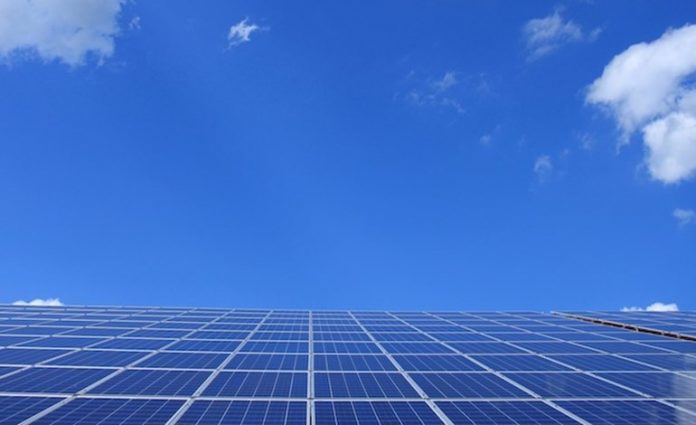Norwegian oil giant Equinor is partnering with Saipem, an Italian oil and gas contractor which is 30% owned by Italian energy company Eni. Together, they will jointly develop “floating solar panel park technological solution for near-coastal applications,” according to PV Magazine. Saipem has a subsidiary called Moss Maritime that provides engineering services to the offshore oil and gas industry, as well as the renewable energy sector. The partnership’s goal is to develop a modularized system that features easy fabrication, transportation and onsite installation. In other words, a plug and play floating solar system. The companies have yet to release any technical details of their technology.

Image credit: Moss Marine
A spokesperson for Saipem says the technology will be ideal for areas with no large water reservoirs and very windy areas. “The ambition is to be one of the leading providers of near coastal and offshore solutions for floating solar panel parks,” the company says. Moss Marine has decades of experience in building floating oil and gas platforms and floating bridges.
EU Group Promotes Agrivoltaics
Solar Power Europe is a new trade group that is promoting agrivoltaic technology. “Solar energy and agriculture can go hand in hand,” said Walburga Hemetsberger, CEO of SolarPower Europe tells PV Magazine. She sees a “triple benefit” in which the combination increases the yield of agricultural crops, reduces water consumption, and produces renewable electricity. “This is what a climate-neutral Europe looks like, where local agriculture and low-cost solar energy may become the engines of a sustainable European economy,” Hemetsberger says.
SolarPower Europe claims local agriculture and solar energy could become the engines of a sustainable European economy. The trade body has created a task force, led by French independent power producer Amarenco, that aims to place agrivoltaics at the top of the European agricultural policy agenda, while also establishing global standards for the segment.
The working group will be chaired by French project developer Amarenco, which wants to push agrivoltaics to “the top of the European agricultural political agenda” and encourage “the adoption of agri-PV solutions throughout Europe by focusing on reforms for the common agricultural policy and the ‘farm-to-table’ strategy.”
Alain Desvignes, the CEO of Amarenco, says “Thanks to the sharing of knowledge and best practices between the agri-PV sector and agricultural experts, the EU can take the lead in agri-PV technologies and set a global standard for this segment. German technology leader Fraunhofer Institute has been a leader in agrivoltaic technology, establishing testing and research facilities in Germany and other countries around the world. Not every crop takes well to agrivoltaics, but for those that do, Fruanhofer says the productivity of arable land can be increased by 60% by combining solar with farming.






